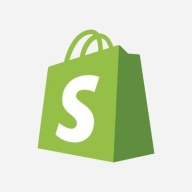

Oracle ATG and Shopify both cater to the e-commerce sector, each with unique strengths. Shopify seems to have the upper hand with its user-friendly interface and scalability, making it ideal for small to mid-sized businesses.
Features: Oracle ATG excels with advanced personalization, comprehensive integration capabilities, and sophisticated merchandising features, appealing to larger enterprises. Shopify offers an intuitive platform with a robust app ecosystem, seamless checkout processes, and strong SEO capabilities, all designed for quick setup and ease of use.
Room for Improvement: Oracle ATG could improve by shifting to a cloud-based architecture, reducing dependency on infrastructure, and enhancing modern innovation. Shopify might consider expanding customization options for advanced users, offering more out-of-the-box tools for large enterprises, and improving its support for high transaction volumes.
Ease of Deployment and Customer Service: Oracle ATG involves a complex deployment process requiring technical expertise, while Shopify provides a straightforward, rapid setup model. Shopify supports users with extensive documentation and 24/7 customer service, focusing on speed and efficiency.
Pricing and ROI: Oracle ATG involves significant upfront costs with a longer ROI period due to its enterprise-level features. In contrast, Shopify's affordable subscription-based plans allow businesses to achieve quicker ROI with minimal initial investment.


Oracle ATG is an ecommerce solution that features out-of-the-box omnichannel experiences, makes it easy and fast to launch websites, provides scalable business-user control, and integrates well with other products. The platform helps businesses ensure relevant experiences to their customers at each touchpoint of a customer’s purchase journey (including the web, contact center, mobile devices, social media, physical stores, and more). Thich helps to increase sales and ensure a seamless buying experience. The solution can be implemented on premises or hosted by Oracle or a third party and it also runs on one of three application servers, including Oracle WebLogic, JBoss, or IBM WebSphere.
Oracle ATG Web Commerce is made up of three platform layers:
Oracle ATG Features
Oracle ATG has many valuable key features. Some of the most useful ones include:
Oracle ATG Benefits
There are several benefits to implementing Oracle ATG. Some of the biggest advantages the solution offers include:
Shopify is an easy to use, fast, and secure eCommerce platform. Its CMS platform comes with several dynamic and useful features to help users create and manage their websites. The solution’s high-end security features, insightful analytics, user-friendly interface, and vast range of third-party integrations makes it one of the top platforms in the market.
Shopify Features
Shopify has many valuable key features. Some of the most useful ones include:
Shopify Benefits
There are several benefits to implementing Shopify. Some of the biggest advantages the solution offers include:
Reviews from Real Users
Below are some reviews and helpful feedback written by PeerSpot users currently using the Shopify solution.
Badrilal P., Shopify Developer at Freelance, says, “Shopify can be used without any coding knowledge; just drag and drop and configuring, those are the basics. It's a great solution for people who are in the initial phase of their business. They can use it to easily set up a store that includes product info, product pricing, add to cart, payment methods, gateway integration, menus, contact us forms, and inquiry forms. Anyone can set those features up in one day using Shopify. That's a huge benefit for our customers.”
PeerSpot user Tushar K., Co-founder at Dotmagic Infotech/Shopify Expert at Dotmagic Infotech, mentions, “The most valuable features are the core structure and backend structure. Our clients are easily able to manage their sites at the backend. Shopify provides an easy to use service at the backend that includes product upload, customer service, team settings, and team customization. It is all very easy to handle.”
We monitor all eCommerce Platforms reviews to prevent fraudulent reviews and keep review quality high. We do not post reviews by company employees or direct competitors. We validate each review for authenticity via cross-reference with LinkedIn, and personal follow-up with the reviewer when necessary.